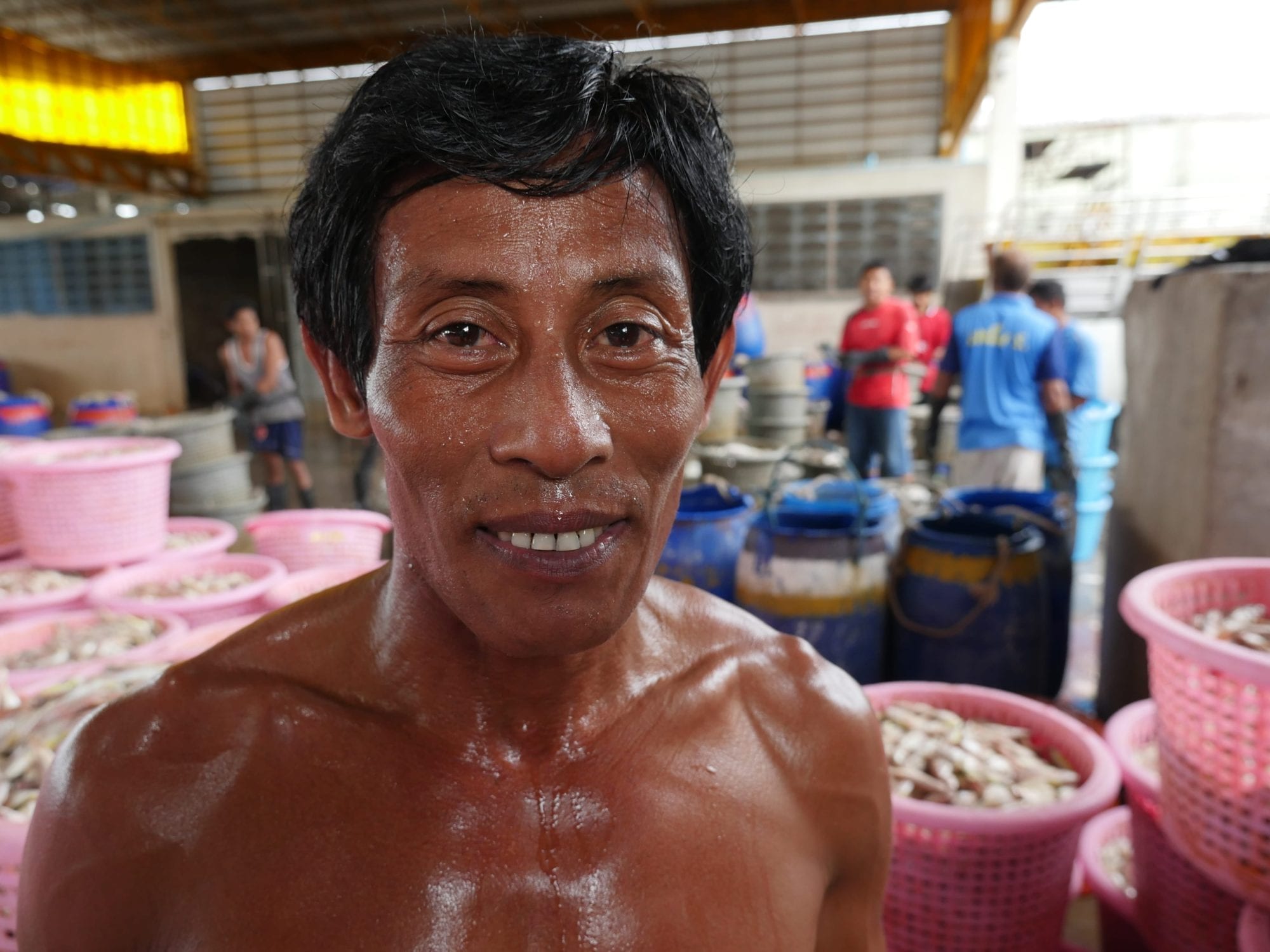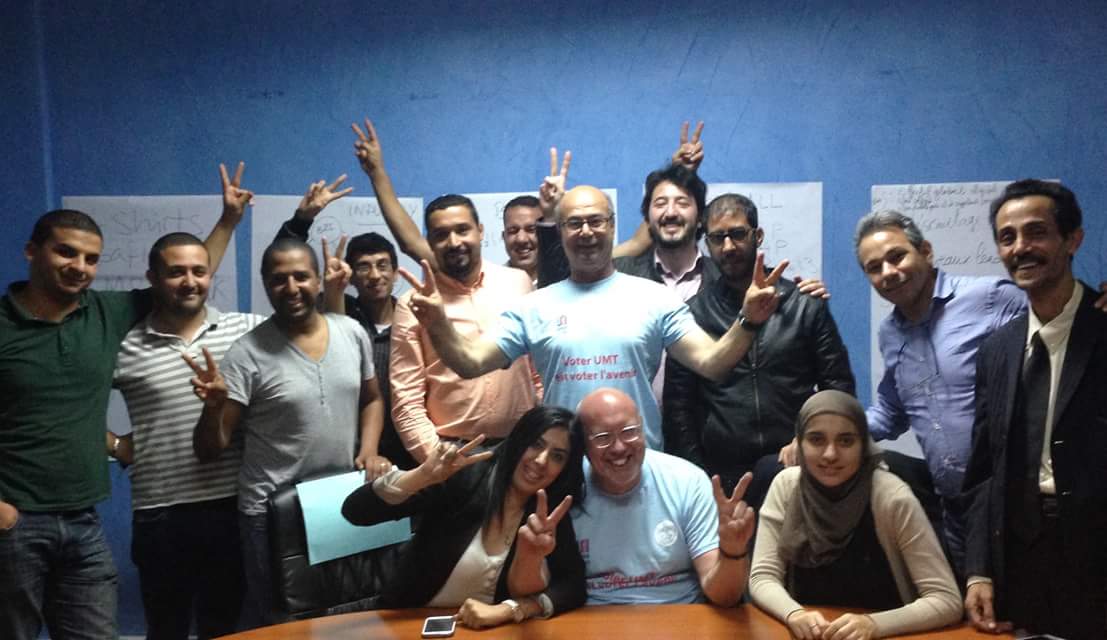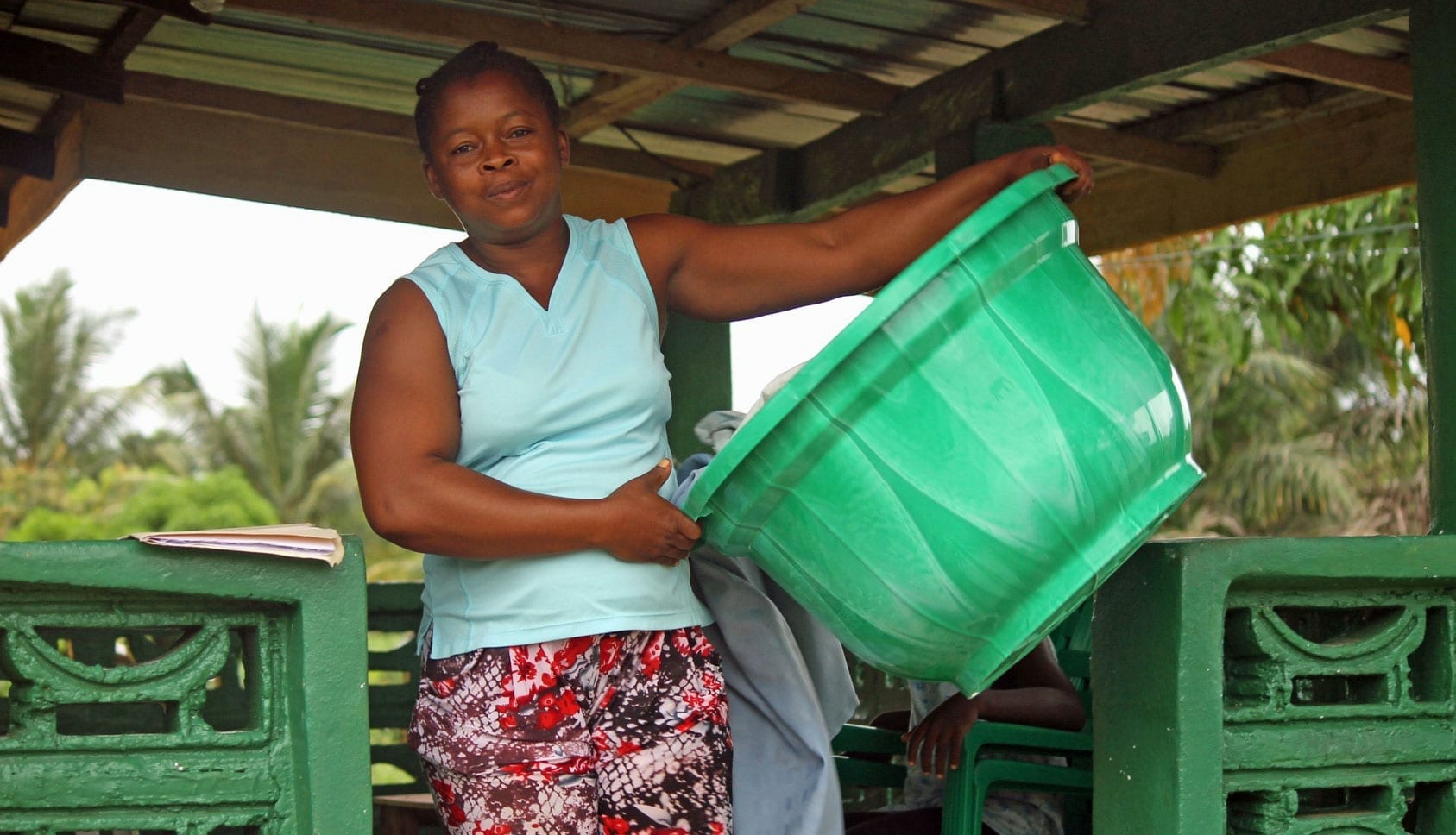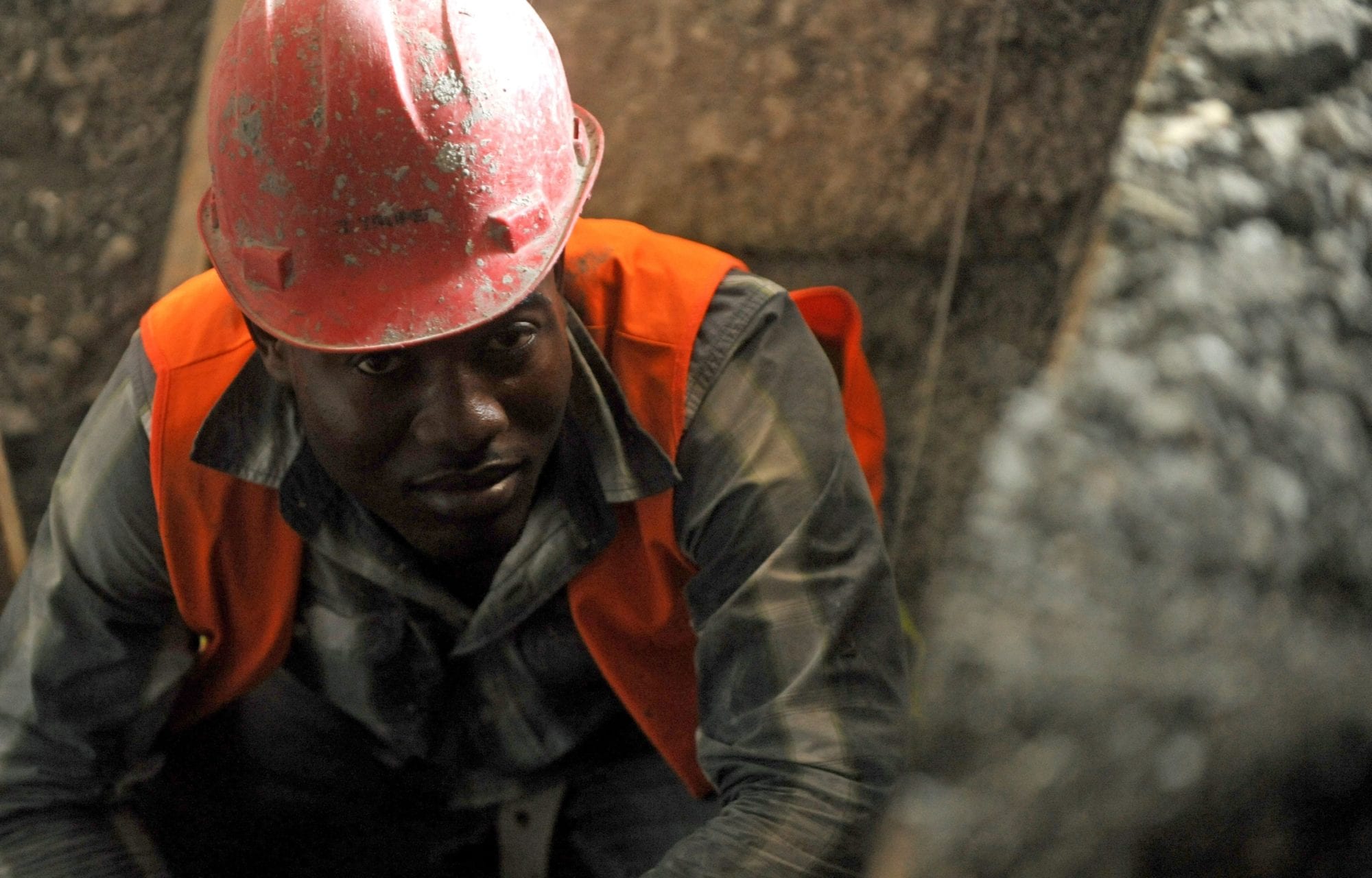
Jul 4, 2015

Jun 29, 2015
Some 13,700 workers won collective bargaining rights at 11 call centers across Morocco, a major victory for the country’s union movement that culminates a three-year effort to help call center workers form a union. Elections took place between June 1 and June 10, and the results were announced late last week.
The Union Marocaine du Travail (Moroccan Labor Union, UMT) also won the right to represent all the country’s workers at the national level with employers and the government—a “tripartite social dialogue” process that addresses issues such as benefits and minimum wages. In these national negotiations, union representatives will negotiate on issues specific to the approximately 100,000 call center workers in Morocco.
Next Step: Bargaining
Describing the win as an “historic breakthrough,” the UMT says in a statement that the next step is to negotiate with employers and the government to achieve an industry-wide collective bargaining agreement. The Solidarity Center and UNI Global Union allied with the UMT to support the campaign with training and other resources.
In Morocco, worker delegate elections are held every six years. More than 35 percent of the worker delegates elected at the 11 call centers are union affiliated, giving the UMT the right to negotiate collective bargaining agreements at each worksite. Moroccan law requires at least 35 percent support for union representation at a worksite.
The call center industry, comprised of mostly young workers, a majority of whom are women, is part of the country’s growing offshoring sector. Morocco is now among the top 30 offshore destinations for call centers, business process outsourcing and information technology outsourcing.
Agriculture Workers Won Bargaining in January
The UMT is one of four union federations that will represent workers in national dialogue. The others are the Confédération Démocratique du Travail (Democratic Labor Confederation, CDT); the Union Générale des Travailleurs du Maroc (General Union of Moroccan Workers, UGTM; and the Union Nationale du Travail au Maroc (National Union of Moroccan Workers, UNTM).
In another major victory for Moroccan workers earlier this year, the CDT and the agro-industry employer, Les Domaines Brahim Zniber, signed a collective bargaining agreement that covers nearly 1,000 agricultural workers on five large farms in Morocco’s fertile Meknes region.

Jun 26, 2015

Patricia Miller at the Stephen Tolbert Estate, Monrovia. Credit: Solidarity Center/Bill E. Diggs
Liberian domestic workers and other informal-economy workers in Liberia are set to receive significant wage gains, collective bargaining rights and labor law protection under the Decent Work Bill signed today by President Ellen Johnson Sirleaf. The bill takes effect when printed into handbills for distribution.
Unskilled workers will earn a minimum of $3.50 per day, an amount that is more than five times the $15 per month salary of the lowest-paid domestic workers in Liberia, says Marthaline Cole, coordinator of the Domestic Workers Union of Liberia (DOWUL).
David Sackoh, general secretary of the United Workers’ Union of Liberia (UWUL) and the Liberia Labor Congress, was among those taking part in today’s bill-signing event.
“It’s time for us to join hands together to build and strengthen domestic workers and their union in Liberia,” Sackoh said.
Union leaders waged a years-long campaign for passage of the bill, which was delayed by more than five years over contested wage provisions. The Senate passed a final version last month.
If properly implemented, the new law will help domestic workers recover from the economic impact of the Ebola crisis, including temporary wage loss and permanent job loss.
Many employers laid off domestic workers during the Ebola crisis. Some domestic workers left their jobs to care for sick family members or to recover from illness and were not allowed to return because of social stigma around Ebola.
Until passage of the Decent Work Bill, domestic workers, like other informal-economy workers who were temporarily or permanently laid off during the Ebola crisis, had no legal protections. And only formal-economy workers were covered by the country’s labor law and could form unions and bargain collectively.
Implementation of the minimum wage may be difficult to achieve, says Cole, but the force of law is key.
“Once something is done legally I think people will pay … Definitely you have to abide by it or they can take you to court,” she says.
Inclusion of informal workers under Liberia’s labor law will help workers build collective power, says Cole. DOWUL is trying to rebuild its membership, which was slashed in half by the Ebola crisis, and the new law will enable to union to register with the government for the first time. DOWUL was organized under the leadership of the UWUL, one of Liberia’s two labor federations, and so operated without legal recognition or protection.

Jun 26, 2015

Street vendors in Harare delivering their petition. Credit: Patience Maria, Musaringo
Street vendors in several Zimbabwean towns were evicted today, following a June 26 deadline to remove their stalls in the city centers and set up in government-approved areas. Government officials warned that force could be used if they refuse.
Although Harare street vendors have so far resisted eviction, the future is uncertain, says Wisborn Malaya, secretary general of the Zimbabwe Chamber of Informal Economy Associations (ZCIEA).
“So, it is not good news,” he said.
Local authorities evicted street vendors in the towns of Chivhu, Chinhoyi, Gwanda and Marondera, after vendors refused to relocate because there are not enough places for all of them, Malaya says.
Vendors are joining together to oppose the evictions and build strength to achieve fundamental labor rights through the association, whose membership has risen from 177,000 to more than 190,000 since the eviction campaign began.
Hundreds of street vendors took to the streets of Harare earlier this week to deliver a petition to Parliament against eviction orders. Street vendors in Harare today spilled out across the sidewalks and streets in defiance of the order.
“We hope the government will concede not to be brutal to the people so there is not punishment of the people who are trying to earn an honest living,” says Malaya. “(But) vendors are vowing to stay on the streets and take what must come.”
Vendors also face other challenges, he said. “Some of these places, especially in the major cities have been taken over by ‘barons’ who occupy the space and charge the vendors rent. They want to make money out of the people.”
ZCIEA represents informal traders, including street vendors, cross-border traders, tailors, home welders and carpenters in 30 territories across Zimbabwe.
With few formal sector jobs available in Zimbabwe—as in much of the world—the vast majority of the country’s nearly 15 million people are employed in the informal economy, and the number of street vendors is increasing exponentially.

Jun 24, 2015
Tens of thousands of Dominicans of Haitian descent and Haitian migrant workers face imminent deportation from the Dominican Republic in a “crisis that has been building for many years,” says Cathy Feingold, AFL-CIO International Department director. “There is a long legacy of discrimination against workers and families of Haitian descent,” according to Feingold, who moderated a panel on the issue Tuesday in Washington, D.C.
“The Loss of Citizenship and Mass Deportation of Families of Haitian Descent from the Dominican Republic” brought together experts who discussed the nearly impossible hurdles Dominicans of Haitian descent were required to meet to qualify for a status that would allow them to apply for naturalization. June 17 was the deadline for registering with the government, which has not yet begun mass deportations.
Although the government advertised the registration process as free, saying only a handful of documents would be required, the reality has been far different, said Maritza Vargas, secretary general of SITRALPRO, the union for workers at the Alta Gracia Project in the Dominican Republic.
Speaking on the panel, she said when workers tried to register at government offices, they were first told they needed a couple documents—but later informed they needed up to 12 documents, the gathering of which comes at costs the equivalent of two or more months’ wages, sums that poor workers cannot afford. The hurdles are compounded by the Haitian government’s inability to rapidly provide documents and the Dominican government’s failure to open offices sufficiently staffed to handle registrations.
The Dominican government is justifying its move to deport Dominicans of Haitian descent by saying everyone had a chance to register, said Wade McMullen, staff attorney for Partners for Human Rights at the Robert F. Kennedy Center for Human Rights. Yet “the government created a system in which they can’t win. Under the guise of the rule of law, tens of thousands of Dominican citizens are being converted into undocumented migrants.”
Because of a 2013 Constitutional Court ruling, people born in the Dominican Republic—many of whom speak only Spanish and have never been to Haiti—must renounce their Dominican citizenship and apply for Haitian papers, said Lauren Stewart, Solidarity Center senior program officer for Dominican Republic and Haiti.
A 2014 report by the Solidarity Center and AFL-CIO called the ruling an “egregious abuse of fundamental human rights and a clear violation of international law.”
While a later presidential decree recognized the citizenship of roughly 68,000 people, an additional 130,000 Dominican natives who never had documents were forced to prove birth in the Dominican Republic to apply for Haitian citizenship and apply for regularization in the country of their birth with Haitian documents. Only about 10,000 of these people applied under the plan. Dominicans of Haitian descent and Haitian migrant workers constitute at least 6 percent of the Dominican population, Stewart said.
The Network of Support to Migrant Workers of the National Confederation of United Trade Unions (CNUS) and the Migrant Justice Movement are calling for the regularization plan to be extended at least until the end of year. The coalition, which includes unions and migrant organizations, formed at a 2014 advocacy training organized by the Solidarity Center. The Solidarity Center and its union partners have held trainings with workers on the regularization process and assist those seeking to register with the government.







